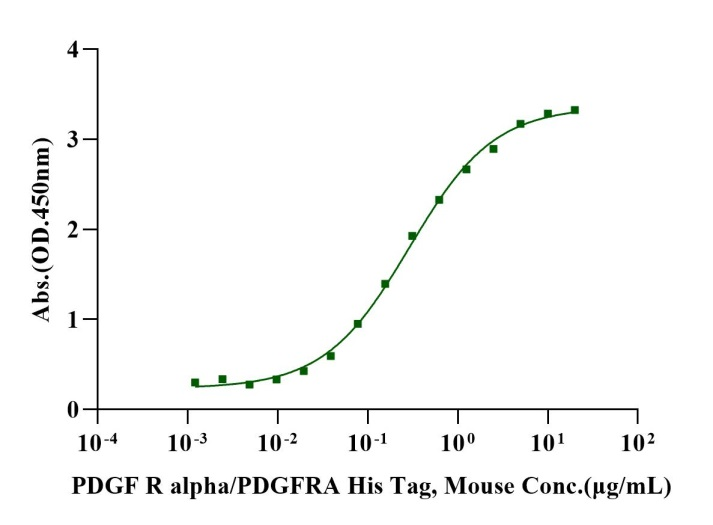Bruno Vincenzi. Andrea Napolitano.Mariella Spalato Ceruso. Francesco Pantano . Daniele Santini. Giuseppe Tonini. Olaratumab: PDGFR-α inhibition as a novel tool in the treatment of advanced soft tissue sarcomas. Crit Rev Oncol Hematol. 2017 Oct:118:1-6. Epub 2017 Jul 15.
PDGFR-α has been shown to regulate angiogenesis both in normal and pathological conditions, mainly stimulating the production of vascular endothelial growth factor (VEGF).PDGFR-α is expressed and active in several human malignancies. The most common alterations that lead to active PDGFR-α signaling in solid tumors are gene amplification in subsets of aggressive gliomas and non-small cell lung cancers,and activating mutations in c-KIT-negative GISTs. Among other cancers, PDGFR-α is also overexpressed in ~40% of hepatocellular carcinomas,~20% of non-GIST sarcomas,and ~15% of serous ovarian carcinoma.Finally, PDGFR-α translocations have been found in hematologic malignancies of the eosinophil lineage. Notably, in malignant conditions PDGFR-α expression is usually not confined to cancer cells, but is also present in tumor-associated stromal cells, which provide paracrine factors that stimulate angiogenesis and extracellular matrix remodeling.Finally, PDGFR-α expression has been shown to be correlated to aggressive disease and significantly worse patient survival in pediatric high-grade gliomas and hepatocellular carcinoma.

Immobilized PDGF-AA, Mouse (Cat. No. UA040104) at 2μg/mL (100μL/well) can bind PDGF R alpha/PDGFRA His Tag, Mouse (Cat. No. UA010714) with EC50 of 0.25-0.34μg/ml.
1μg (R: reducing condition, N: non-reducing condition).